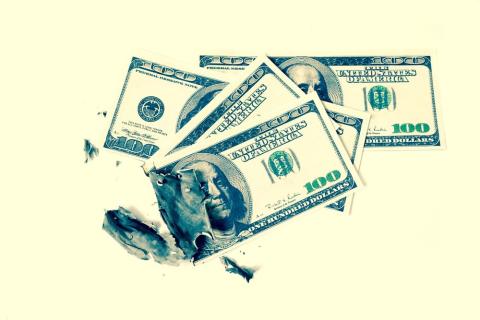Look, I get it. I was big into Ayn Rand too when I was in college. Atlas Shrugged is high on my list of favorite works of fiction, but it is just that -- fiction. It shouldn't be used as a manual for how things should be and the idea of a laissez-faire market cannot be applied to every aspect of life.
A few weeks back, I read a post on Facebook that said the market should decide what is and isn't taught in schools. First, the very idea is perplexing because it wasn't made clear exactly what that means. However, taking it purely on face value, it sounds like a dangerous notion to say the least.
This is taking the concept of laissez-faire capitalism a little too far, but there is a reason I left Rand behind when I left college: I grew up and joined the real world.
At the end of the day, some people take the ideas expressed in Rand's work as the foundation for a utopian society. It is a society of no government involvement in the market at all and unrestrained competition will naturally result in prosperity for everyone -- businesses and consumers. Everyone is happy.
Though the political philosophies differ, the one thing Plato's Republic, Thomas More's Utopia, and this vision of 100 percent laissez-faire capitalism have in common is that they are not real. Utopias are not realistic no matter what philosophy provides for the foundation.
I am not saying Ayn Rand was wrong about everything. She had some great ideas and some great quotes to reflect on. I am not saying I don't support limited government either, because overbearing regulations on the market should be discouraged, but limited government does not mean no government at all.
Take a look at the debate over the minimum wage.
(Check out the articles arguing for raising the minimum wage and the arguments against it.)
Laissez-faire purists say we should eliminate the minimum wage completely because competition in the market will naturally lead to an ideal balance of job payout and profits. In other words, unrestrained competition between businesses would lead to higher wages, job creation, and maximum profits without the need for government regulations to protect employees and consumers.
First, it should be understood how businesses see employees. Employees are an expense; they are a salary that needs to be paid and benefits that need to be given (in a pure laissez-faire market some benefits would not be a necessity to a business because they would not be required by law).
Like any expense, businesses will cutback anyway they can to maximize profits. It is not a sin. The primary goal of a business is to make profits. That is just how it is and it is not a bad thing.
Businesses will hire what the market demands. If there is not a demand for the job then that is an expense businesses will avoid. It is the same reason why eliminating business taxes would not result in a boom in job creation as some argue.
This is also why businesses will never pay more than what they have to for an employee. If there is no minimum wage requirement, there is no protection in place to ensure employees are paid a fair wage as the rate of inflation and cost of living rises. Competition may help to some degree, but it only goes so far because it ultimately comes down to the demand for the job.
It is also important to remember who are the best job creators and it is not employers -- it is consumers.
Increased consumer activity boosts overall economic activity. Higher demand for goods means a need for more supply of those goods which means a business needs to increase productivity to ensure they can provide for increased consumer demand.
Increasing wages to meet not only increased inflation, but an increased cost of living would mean more money in the pockets of households that spend a higher percentage of their income on goods and services. The problem is, even though this would boost competition in the market, we have not seen the market take it upon itself to increase wages to any notable degree.
Even as the economy improves -- slowly but surely -- people are still cutting back because they have to do more with less as wages are rising at a snail's pace or not rising at all even though the rates of inflation and the cost of living continue to rise.
I am not saying the guy at McDonald's should be paid $15 an hour as some workers are demanding, but there is a reason why the minimum wage exists and it is to protect employees. It is not unreasonable to raise the minimum wage to $10.10 an hour because the average age group of fast food workers is not in the teens as some mistakenly believe. Many of these workers are in their mid-late 20s -- or older -- who are forced to take the job they can in a still dismal labor market.
Image Source: shutterstock.com / Vipada Kanajod
